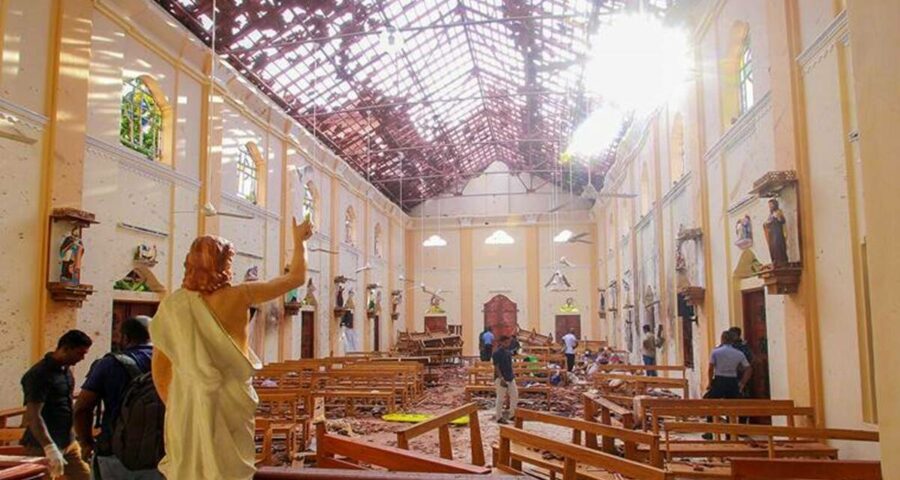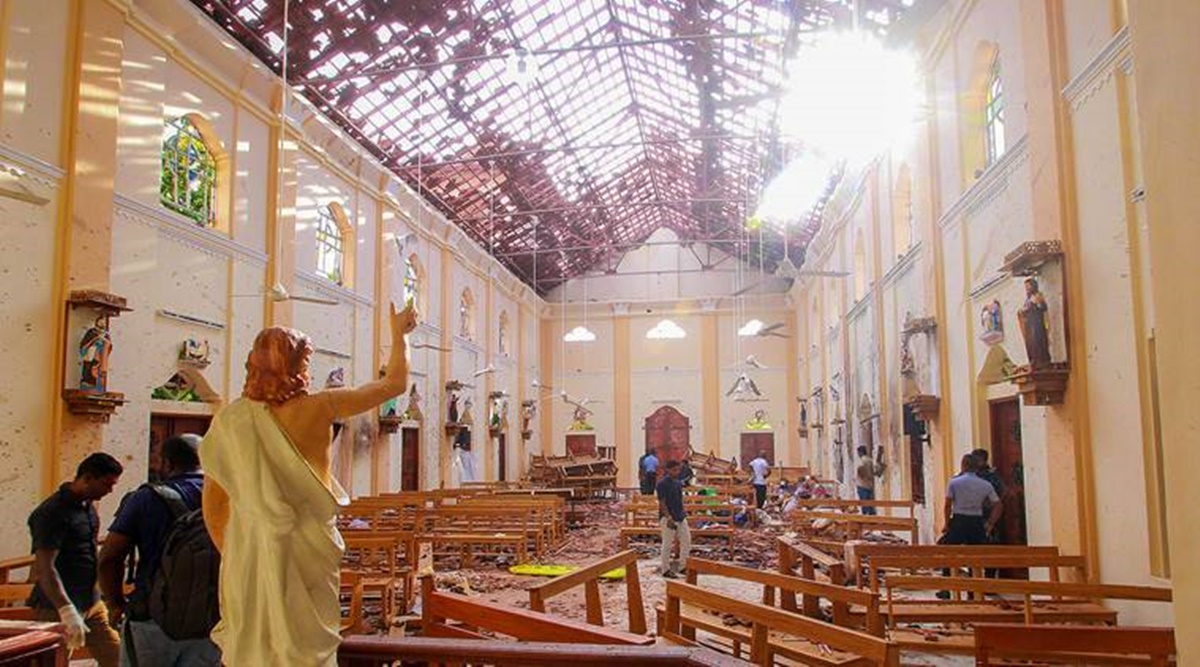As many as 270 people, including 11 Indians, were killed and around 500 others injured when six near-simultaneous and coordinated explosions, carried out by local jihadist group National Thowheeth Jamaath (NTJ) linked to the Islamic State (IS), rocked three churches and three luxury hotels frequented by tourists in Sri Lanka on April 21, last year.
Security at churches across Sri Lanka have been beefed up ahead of Easter on Sunday, police said on Saturday, in the wake of the April 2019 coordinated attacks on tourists and minority Christian community in the country in which 270 people were killed.
“We have tightened security of churches by deploying over 12,000 security personnel” Senior Deputy Inspector General and police spokesperson Ajith Rohana told reporters in Colombo.
The security personnel include 9,350 police officials and 2,542 troops from the tri forces (Army, Nay and Air Force), he said.
Rohana said some 111 churches in the western coastal town of Negombo would be provided security, along with 107 churches in the neighbouring coastal town of Chilaw and some 98 churches in the eastern town of Batticaloa.
The St Sebastian’s Church at Negombo’s Katuwapitiya was the worst-hit in the Easter Sunday blasts that rocked the island nation in 2019 with 114 people dying in the church attack.
As many as 270 people, including 11 Indians, were killed and around 500 others injured when six near-simultaneous and coordinated explosions, carried out by local jihadist group National Thowheeth Jamaath (NTJ) linked to the Islamic State (IS), rocked three churches and three luxury hotels frequented by tourists in Sri Lanka on April 21.
While describing the horror scene at the St Sebastian’s Church, a top priest had said that pieces of flesh were thrown all over the walls, on the sanctuary and even outside the church.
The church, built in 1946, is one of the many churches in Sri Lanka dedicated to St Sebastian who is considered a martyr in the Catholic Church history.
The head of the church, Malcolm Cardinal Ranjith, has recently expressed his disappointment over the probe in the blasts, cautioning the government that if justice is not served, he would approach international organisations.
According to him, the investigations have only focused on failure to prevent the attack and not on the possible masterminds of the blasts.
The previous government headed by President Maithripala Sirisena and Prime Minister Ranil Wickremesinghe was blamed for its inability to prevent the deadly attacks despite the prior intelligence made available on the impending terror strikes.
The Buddhist-majority nation was about to mark a decade since ending a 37-year-long Tamil separatist war in May 2009 when the suicide bombings in 2019 rocked the country.
The churches have been observing ”Black Sunday”, demanding justice for the families of the victims.
Source: Read Full Article


